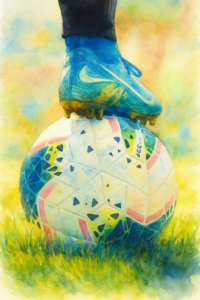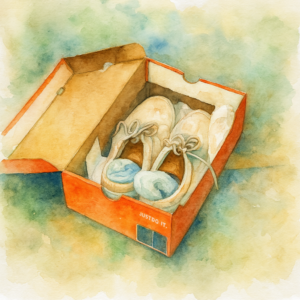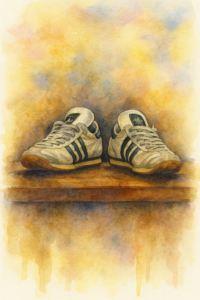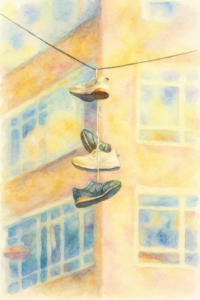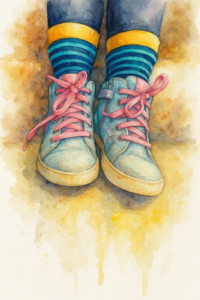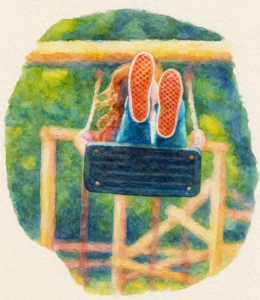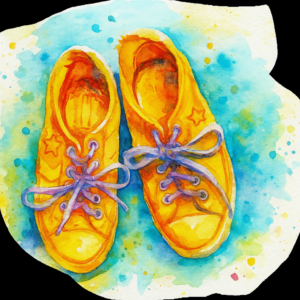Learn French with this clip from Les P’tits Bateaux. Find the full episode here. We do not own the content. The above audio sample and transcription is from Les P’tits Bateaux podcast. We do not own the content. Listen to the entire episode here. What’s opening up for you with this clip? Comment below with…
Start quiz, type what you hear, then join the conversation.
Did you find this one challenging or easy? Did you hear something diffferent? What surprised you? What levels did you complete? Comment below and share what’s opening up for you with this quiz.
Learn French with this clip from Les P’tits Bateaux. Find the full episode here. We do not own the content.
The above audio sample and transcription is from Les P’tits Bateaux podcast. We do not own the content. Listen to the entire episode here.
What’s opening up for you with this clip? Comment below with what was surprising, easy, challenging and/or interesting.
The snippet in English
Find a translation of this snippet here, how much of this did you hear?
Alors pourquoi ? Parce qu’entre les doigts de pied, il y a des microbes, c’est-à-dire des petites cellules microscopiques qu’on ne voit pas du tout à l’œil nu. Il nous faut un microscope pour les voir.
Et ces microbes, qu’on appelle des bactéries, eh bah, celle-là, elles produisent des mauvaises odeurs.
So why? Because between your toes, there are microbes, which are tiny microscopic cells that you can’t see with the naked eye. You need a microscope to see them.
And these microbes, which are called bacteria, well, they produce bad odors.
The above translation from Deepl
What does “doigts de pied” mean?
doigts de pied means “toes” (literally “fingers of the foot”).
Les enfants comptaient leurs doigts de pied en rigolant.
(The children were counting their toes while giggling.)
Usage notes: Informal and commonly used in spoken French, especially with children. The standard anatomical term is orteils, but doigts de pied is more playful and visual.
Cultural note: In everyday conversation, especially with kids or in humorous contexts, French speakers often use doigts de pied instead of orteils. It’s familiar, a bit silly, and widely understood.
What does “pas du tout” mean?
pas du tout means “not at all.”
Tu as eu peur ? — Pas du tout !
(Were you scared? — Not at all!)
Usage notes: Very common in both spoken and written French. Used for strong denial, disagreement, or reassurance. Can stand alone as a full response or be part of a longer sentence.
Cultural note: Often used politely to soften disagreement or reassure someone. The tone can vary—firm, gentle, or humorous depending on context.
What does “à l’œil nu” mean?
à l’œil nu means “with the naked eye.”
Cette étoile est visible à l’œil nu par temps clair.
(This star is visible with the naked eye on a clear night.)
Usage notes: Neutral and standard. Used in science, nature, and everyday speech when referring to something observable without instruments like telescopes or microscopes.
Cultural note: Often used in discussions about visibility, detail, or perception. In figurative contexts, it can imply something is clearly obvious or unmistakable without needing special tools or interpretation.
Les P’tits Bateaux Podcast
Official synopsis: Les enfants posent des questions, des spécialistes leur répondent. Jeunes (et moins jeunes !) peuvent poser toutes les questions possibles et imaginables directement par message vocal via franceinter.fr, sauf pendant les vacances.
I recently discovered this podcast from InterFrance and love it. It’s kids posing questions and the host brings in experts to explain. And it’s aimed at young French kids, not French learners. That’s my favorite kind of content. Being for French kids is what makes it so good.
You’ve got real people (a kid, a host, and an expert), all speaking real French — no AI generated stuff here. The kid asks a question, and then an expert explains it in short, clear language. There’s a ton of repetition, natural turns of phrase, and just enough challenge to keep your ears working.
And because it’s meant for French-speaking kids, the adults naturally explain things simply but not condescendingly. You get exposed to rhythm, tone, interjections (bah, ben, alors), and full sentences — but also some real dialogue dynamics. And that’s gold if you’re trying to move from textbook filler to actually speaking and thinking in French.
Improving your French Listening Comprehension with Podcasts
On this site, fast spoken French is finally accessible to all levels. The tool break podcasts into short clips each set to transcription fill-in-the-blank practice. My favorite practice in class is always dictées. While they can seem overwhelming at first, the confidence boost and skills payoff for doing the work pays off. They’re perfect for anyone at any level, from advanced students to those just starting.
We use podcasts and our practice exercises to make it possible for anyone, anywhere to immerse in French with fun and ease. Join us and enjoy French, one short clip at a time. Let’s learn together!
Make the most of the site:
- Daily Podcast Listening: Start your day with a French podcast from our collection. Choose episodes that align with your interests to keep it engaging.
- Active Listening Practice: As you listen, try to pick out key phrases and vocabulary. Use our daily quizzes to test your understanding and reinforce learning.
- Repeat and Shadow: Listen to the same podcast segment multiple times. Try to mimic the pronunciation and intonation to improve your spoken French.
- Note-taking: Jot down new words or phrases you encounter. Review these notes regularly to enhance vocabulary retention.
- Reflect and Respond: After each episode, summarize the main points in French, either in writing or aloud. This helps in consolidating your learning and improving your expressive skills.
- Read More:
- True Beginner or A1 Learners: discover tips learning with podcasts at an introductory level.
- Discover all the podcast clips on FrenchIRL organized by level.
- Top Tips: Here’s how I make the most of my own site.
I created the French In Real Life project because I wanted to understand more than just my teacher and youtubers who cater to learners. I wanted to understand the French I hear in France. I hope you can benefit as much as I have. Become a supporting member for access to all clips.
What’s opening up for you?
Comment below with what’s opening up for you with this clip. What do you love about this? What was challenging? What was easy? Share your learning progress below!
Learn French with this clip from Les P’tits Bateaux. Find the full episode here. We do not own the content. The above audio sample and transcription is from Les P’tits Bateaux podcast. We do not own the content. Listen to the entire episode here. What’s opening up for you with this clip? Comment below with…
Start quiz, type what you hear, then join the conversation.
Did you find this one challenging or easy? Did you hear something diffferent? What surprised you? What levels did you complete? Comment below and share what’s opening up for you with this quiz.

